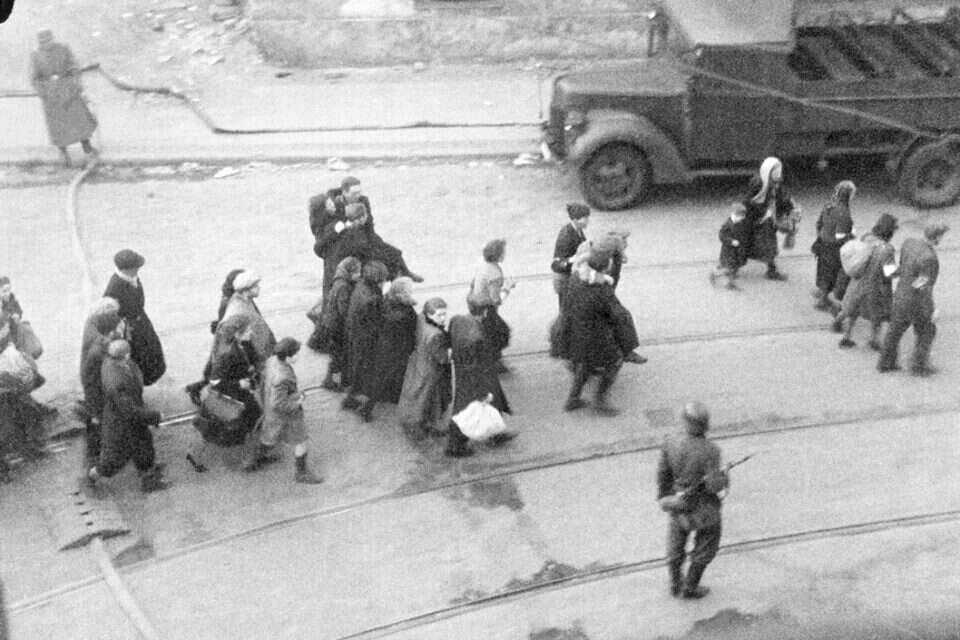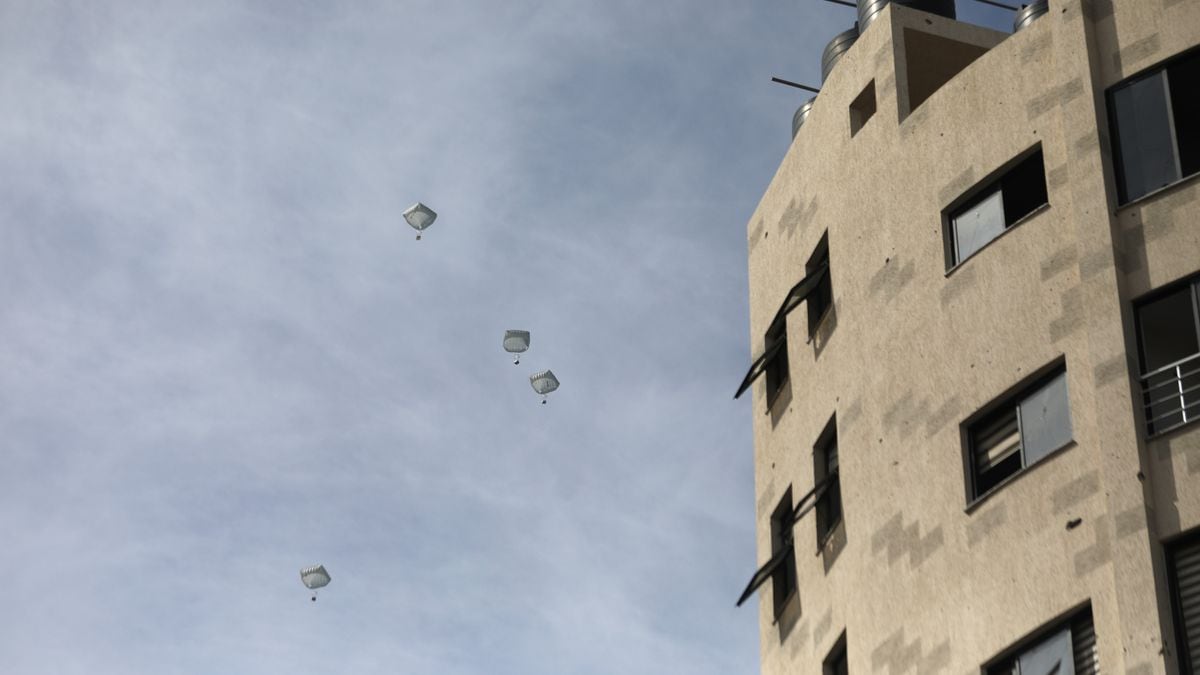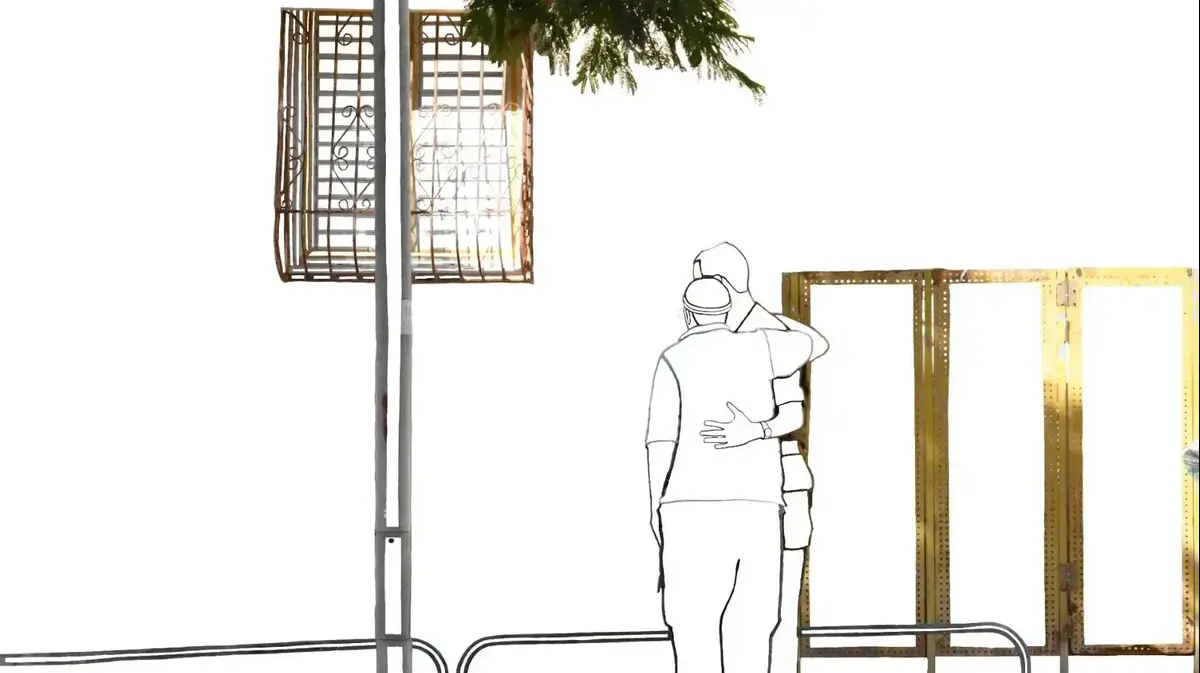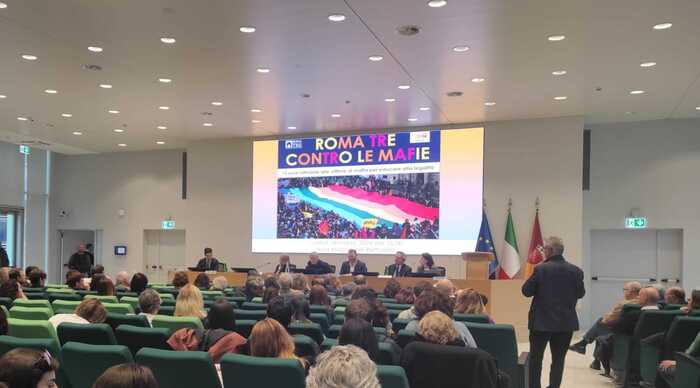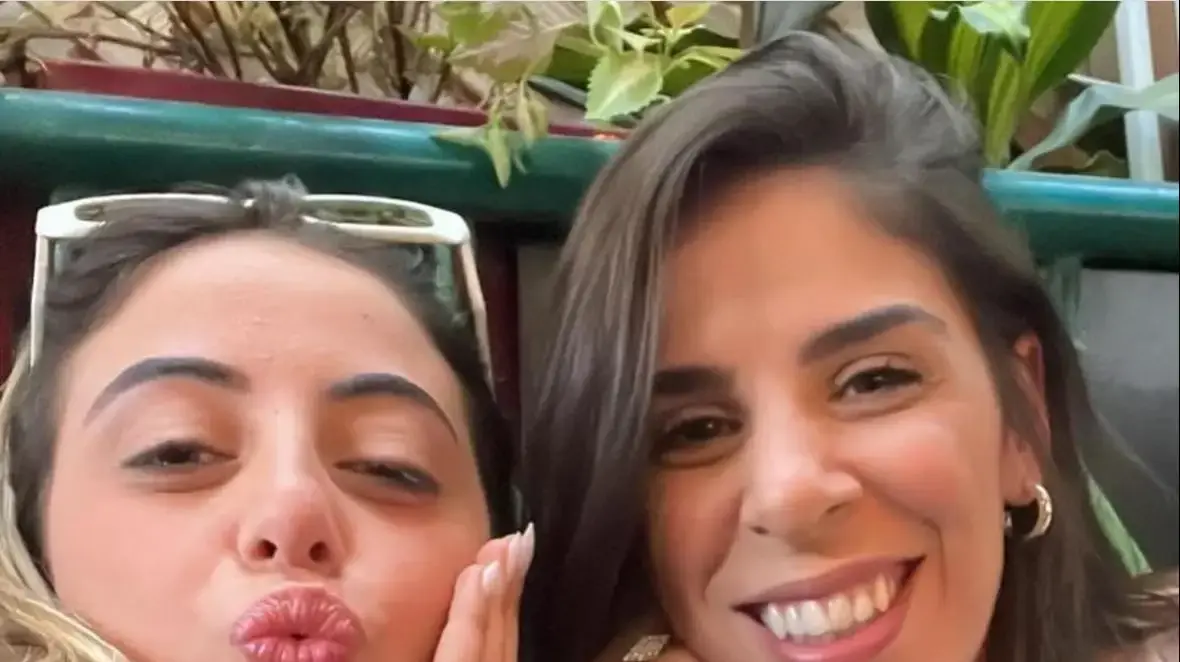Follow me," Jacek motions to me. We are standing in the center of Warsaw, where the Jewish ghetto was located, next to the monument to the fighters of the uprising. Jacek Konik, professor of history and director of the excavations, and Aaron (Albert) Stankowski, director of the future museum of the history of the Warsaw Ghetto, lead me past To the avenue of trees, to the lawn, at the end of which is a compound enclosed by tin fences. Yatsek opens the lock, pushes open the creaking gates and says in Hebrew, "This."
At one point I am thrown into a dramatic moment of Warsaw's Jewish history.
In the middle of the green meadow, under a gray sky and a drizzle of rain, a basement is discovered where Jews hid during the Warsaw Ghetto Uprising, in October 1943, when the Jews took their fate into their own hands for the first time and fought the Germans.
I see the bunker rooms, the neat and improvised passages between them and adjacent buildings, the electricity, water and sewer lines, and everything is painted gray - the color that indicates the huge fire that eventually consumed the entire ghetto, down to the last of the buildings.
Not far from where we stand, the fighters of the Jewish Military Organization (ACI) waved the flags of Israel and Poland, when the rebellion broke out. Perhaps from the building standing above this basement, grenades were thrown and shots were fired at the SS troops, who were sent to suppress the Jewish rebels.
"We found many findings that tell about life here," Yatsek explains to me.
"Tefillin, talots for taking hands and candlesticks, and also other items."
For several months now, he has been managing the excavation, as part of the establishment of the "Warsaw Ghetto Museum", one of the new projects of the Polish government to research and commemorate the Holocaust.
The museum will operate in what used to be the Warsaw Jewish Hospital complex, which is on the other side of the ghetto, a ten-minute drive away.
It was supposed to open in the spring of 2023, on the 80th anniversary of the uprising, but the corona epidemic and the war in Ukraine delayed the plans for three years.
In addition to the physical findings, the museum will also screen a film that will recreate the course of events.
We are going to the historic Jewish hospital - a building that has a fascinating story in itself and was active until 2007. When the municipality was unable to sell the building, it was decided to house the museum of the history of the revolt.
Director Stankowski shows me the temporary exhibition, which currently only includes pictures of life and death in the ghetto - before, during and after the war.
But inside the building, which has not yet been opened to the general public, is the main thing.
Hundreds of household items and objects found in the bunker are spread out in his rooms: plates, bottles, cutlery, metal cables. There is not a single item that resembles a weapon, but there are burnt pages of holy books. And the tefillin found in the basement are locked separately in a safe, in the temporary offices of the museum.
Also a plate for Seder Pesach. The dishes found among the ruins, photo: Ariel Kahana
Walls that have become memorial sites
At this point, Stankowski and his men are planning just one more excavation in the vast area of what used to be the ghetto.
After the Germans burned it to the ground, the Russians bombed what was left of it to prevent looting.
This was the fate of most of Warsaw, and this is why only a few remnants of the ghetto remain.
But even though it was destroyed, Warsaw, like Berlin, does not hide from its guests the horrors of the Nazis.
vice versa.
The few walls left from the ghetto walls have become memorial sites.
A memorial to Janosz Korczak stands next to the enormous "Palace of Culture and Science" overlooking the entire city.
In a casual drive on 12 Prozana Street I suddenly notice a huge mural, which includes Hebrew letters and reminds of the Jewish life that is no more.
It was painted as part of a large project for which the municipality recruited young artists to remind us of the way life was in Warsaw before the war.
One of the main entrances to the city is called "Yerozolimski", meaning Jerusalem Avenue, and they cross it and reach the ghetto.
According to Michael, the guide accompanying me, there is a clear intention here to remind the city's residents of the Jews who were murdered and the ghetto that was destroyed.
In the heart of Warsaw is the "Poland" museum, which tells about the thousand years of the life of the Jews in the country.
It was established and operated with government funding.
Twice a year Poland sounds a national memorial siren, although not all over the country.
The first is on April 19, the anniversary of the Warsaw Ghetto Uprising, like the holocaust day siren in Israel (in Israel the Hebrew date is noted).
The second, on August 1, the day the Polish uprising against the Nazis broke out in 1944.
Every Monday and Thursday, and much more often than in Israel, memorial ceremonies are held in Poland for different episodes of the years of the extermination of the Jews by the Nazis.
Thus, for example, my arrival for a two-day visit, on behalf of and financed by the "Polish Institute", was held as part of a ceremony to commemorate the 80th anniversary of Operation Reinhard - the main episode in the murder of 1,700,000 Jews, from March 1942 to November 1943, most of them Poles.
"Poland is one of the most advanced countries in the memory of the Holocaust. The museum we are establishing to commemorate the uprising is a positive example of this," Stankowski tells me.
He himself is a Jew who wears a kippah and speaks basic Hebrew, second generation after the Holocaust.
His father continued to live in Poland, unlike most of the survivors who fled to Israel because of the disturbances committed by Poles against the Jews after the war, or were deported to Israel by the communist government in 1968.
He sometimes comes to Israel with cash, both as part of his work and to visit family members.
For the purpose of building the mutiny museum, he hired the services of several Israelis, headed by Prof. Danny Beltman from the Hebrew University, who is responsible for the professional-historical aspect.
In a conversation in the temporary offices of the museum, he enumerates in my ears the memorial sites that are being built these days in the extermination camps all over Poland.
"There will be a new educational center in Treblinka. They are also working on an impressive museum in Sobibor. Everything is financed by the Polish government."
And does it not bother you that the Poles enacted a law that determines what is allowed to be said and what is not allowed to be said regarding their part in the Holocaust?
"Until this law was enacted, people wrote and said: 'Polish extermination camps.' The Polish government said, 'Say what you want, but base your words on facts and evidence.' And that's it. Just as not all Israelis are guilty in a case where one of them kills a Palestinian - the same goes for the Poles and the Jews. There are different sides to history. Not everything is black and white. Jews lived in Poland for a thousand years. Begin and Ben-Gurion and many others were born here. It should also be shown That. The whole spectrum should be shown. People simplify history. Not all Poles are anti-Semitic. Not all of them killed Jews. There were also 7,000 followers of the nations of the world. And thanks to one of them, who saved my father, I am alive."
In addition to the "Poland" museum and the mutiny museum under construction, there is also the "Jewish Historical Institute", called by many the "Ringleblum Museum", named after the historian Emanuel Ringelblum, who with extraordinary intelligence and talent documented the atrocities of the Nazis in real time and managed to preserve the information, so that it would be discovered later The war, as it did happen.
Although gifted with a developed historical sense, Ringlenblum only realized in retrospect how wrong his own opposition and the opposition of the majority of the Jewish leadership to all Mary Benazirs was.
But the disillusionment was too late.
He and his family were captured after the uprising in the ghetto and exterminated.
The museum named after him describes the history of Polish Jewry, with an emphasis on the extermination, and reviews in detail the plots of Ringelblum and the members of the "Sabbath Pleasure Group" who worked with him to document the atrocities.
The institute is housed in the historic building of the Jewish community, one of the only buildings in the city that survived both the Nazi and Communist eras.
"Here, next to the community building, stood the Great Synagogue of Warsaw. But the Germans blew it up as revenge for the uprising in the ghetto," explains attorney Monika Kravcik, director of the Ringelblum Museum. In the entrance hall, there are signs of fire on the floor. This is not neglect, but In the remains of the fire left from the burning of the ghetto by the Nazis, the fire took hold of the building but did not destroy it.
This institution is also funded by the Polish government.
"We have no reason to complain," describes Krabczyk, who is also Jewish, of her relations with the Polish establishment.
"We have a research department that includes 15 academics who mainly research the Holocaust period and its aftermath. They operate in full freedom of action without any restrictions. In Israel we have collaborations with both Yad Vashem and Yaakov Herzog College."
In Israel there is criticism that the Poles obscure their part in the murder of Jews and that the subject is not included in school curricula.
"The fight that is going on here is over the number of hours of history that students will study at all, and that these studies should include the Holocaust. So you are asking me about the specific issue of the Poles' part in the murder? I suggest to those who said these things to leave Poland's curricula alone."
And if one of your researchers wants to investigate the part of the Poles in the murder of the Jews, during or after the Holocaust, will he be able to do so without interference?
"The answer is an unequivocal yes. But there are many other topics and aspects that can be explored: how did the Jews survive in the ghetto, what were their living conditions, what was the relationship between the Jewish and non-Jewish undergrounds. What you propose is only one of many topics, and you raise the This is because in Israel they claim that there are restrictions on freedom of research and freedom of expression here in Poland. I think there are no restrictions today."
20. His words aroused great anger in Poland, photo: Yehoshua Yosef
A new law for shaping the consciousness of the past
Kravczyk's complex answer testifies to the difficult, emotionally charged and politically explosive conflict that exists between Israel and Poland.
Unlike most conflicts between countries, it does not deal with the present but with the past.
In the eyes of the Israelis, the Poles are guilty.
90% of Polish Jews - we numbered 3.3 million people before the war - were murdered, that is, about half of the six million.
The absolute majority of the extermination of all the Jews was done on Polish soil.
But the Poles also see themselves as victims of the Nazis, no less than the Jews.
Six million Poles were murdered by the Germans.
The Germans established the extermination camps in Poland because, according to the race theory, they saw the Poles as inferior, and did not want to "contaminate" Germany with their evil deeds.
And there are also thousands of Poles who saved Jews in the war.
The conflict that broke out between Israel and Poland has a clear date of birth: on January 27, 2018, the day the world marks the day of the liberation of the Auschwitz camp, the parliament in Warsaw approved the "National Remembrance Institute Law".
The law regulated the operation of the institute in question, but more importantly - it was designed to shape the way in which the Polish people perceive their past.
One of the main sections of the law forbade defining the extermination and concentration camps operated by the Germans in Poland as "Polish camps" and even established a three-year prison sentence for those who use this wording.
In Poland itself, in the international community and in Israel, the law caused great outrage.
The Minister of Foreign Affairs at the time, Israel Katz, responded with the words "The Poles will cleanse anti-Semitism with their mother's milk." The European Union, which does not like Poland's right-wing government, accused Warsaw of undermining freedom of expression and research, and that it is deteriorating the democratic slope. Poland's strong Prime Minister , Mateusz Morbitsky, tried to fend off the criticism. "It wouldn't be a criminal offense if someone said there were Poles who were responsible for the crimes, just as you can say there were criminal Jews and criminal Russians and criminal Ukrainians.
Not only the Germans were criminals."
Morbitsky, who as a boy struggled against the communist regime, has two Jewish aunts.
One of them was saved in the Holocaust by the Poles of the Righteous Among the Nations.
In that statement, he meant to say that the law prohibits generalization against Poland itself, but does not prevent the mention of crimes by those whom the Poles describe as "individuals".
However, his claim that the Jews were as guilty of the Holocaust as other nations only exacerbated the criticism against his government.
Later, Polish President Andrzej Duda added fuel to the fire when he said that Minister Katz's words led to an increase in anti-Semitism in Poland at the time.
Among other things, tefillin were also found, locked in the museum safe, photo: Ariel Kahana
That fire was extinguished by Netanyahu and Morbitsky through a joint statement drawn up by experts from both countries, which both sides could live with.
But Yad Vashem and many others condemned that product, which was not without politics.
Another step towards solving the crisis was the abolition of the prison sentence for those who generalize and say "Polish extermination camps".
Under Netanyahu's heavy pressure, this sanction was removed from the law.
The Poles realized that they were wrong.
The relative peace achieved did not last long.
In the summer of 2021, the Poles approved the "Property Law", according to which claims for the return of assets that have not been settled for 30 years - will be deleted.
The law is intended to put an end to the lawsuits that have been unfolding in Poland since the beginning of the country's democratic era in 1989.
It was not directed against Jews, but at least according to some interpretations it could also limit the restitution of Jewish property.
In those days, the new foreign minister, Yair Lapid, took office in Israel.
Full of fighting spirit, Lapid decided to "educate the Poles", as he said in closed conversations.
"We are not afraid of anti-Semitic threats and we will not blink in the face of the anti-democratic government of Poland," he declared, and even instructed the Polish ambassador not to return from his homeland vacation in Warsaw.
He also ordered the new Israeli ambassador, Yaakov Livna, to stay in Israel.
This is how a small dispute turned into a big crisis.
At the same time, Israel stopped the youth delegations going on educational tours of the extermination camps.
The reasons were Polish interference in the contents and "security issues".
Later, Israel intended to return the delegations, but then the Poles were already the ones who refused.
To this day they insist that there is no justification for the presence of armed Israeli security guards on their land.
Israel's position is that every official delegation, almost everywhere in the world, is accompanied by armed security guards.
The Poles are insulted by this demand.
They emphasize that Poland is safer for Jews than Western European countries, and in fact more than Israel itself.
In their eyes, the security on their land is generally an Israeli way to convey to the Israeli youth the message that Poland is dangerous for them even today.
In the European Union, and also in Israel, many believe that the Polish government is constructing a historical story designed to serve its needs.
One indication of this is the replacement of the heads of the museums and memorial institutes, who are professionals and veterans, with politically connected young people, who are not always experts in history.
Some see this as a politicization of memory.
In Israel, and not only there, many claim that in Poland today it is impossible to speak freely about the part of the Poles in the Holocaust.
On the other hand, representatives of the Polish government insist that the claim is unfounded.
During the short visit I made to Warsaw at the beginning of winter I tried to get answers.
Not sure I succeeded.
Attorney Monika Krabczyk, director of the Jewish Historical Institute in Warsaw, which is funded by the Polish government: "We have no reason to complain.
We have a research department that includes 15 academics who mainly research the Holocaust period and its aftermath.
They operate in full freedom of action without any restrictions.
In Israel we have collaborations both with Yad Vashem and with Yaakov Herzog College", Photo: Ariel Kahana
Secrets in the National Archives
In a complex of warehouse-like buildings, the National Archives of Poland resides in the south of Warsaw.
The Poles say that it stretches over 92 kilometers, where documents are kept at precise temperatures and ventilation levels and behind heavy doors and codes known only to a few.
My hosts lead me to the bowels of the earth, to the archive that tells the story of Poland from 1917 - that is, a year before it gained its independence - to 1990, a year after the end of the Russian-Communist occupation.
The demarcation of the years is not accidental.
From the Polish point of view, the German invasion in 1939, and the Russian occupation that began in 1944, are one catastrophe with two chapters.
The Polish narrative is that if it weren't for the Ribbentrop-Molotov Pact, which divided Poland between Germany and Russia, Hitler would not have dared to invade their territory and start the world war.
The Polish government cultivates the national motif.
This is one of the reasons why, along with Hungary, Poland is now considered the "bad girl" of the European Union, and many Poles now dislike the Germans and the Russians equally.
The first item shown to me in the archive is the map of the Soviet Union's planned invasion of Europe from 1970. Blue balloons mark where nuclear missiles were supposed to fall.
A few hours after my visit to the archive, shrapnel from a Russian-made missile fell in eastern Poland, as part of the war in Ukraine.
And so - the historical map came to life for a moment.
Nevertheless, my interest is in the way in which Poland remembers the Holocaust, and I ask the guide to turn to this part of the archive.
It turns out that the Poles define as "war criminals" anyone who collaborated with the Nazis or the Communists.
A million documents about such criminals are archived.
After the Holocaust, the communist government prosecuted all the Poles it knew of as being involved in the murder of Jews.
As far as the Poles were concerned, in this they came to terms with their citizens who took part in crimes against the Jews.
At least that's the official version.
We arrive at one of the rooms where the documentation relating to the extermination of the Jews is kept.
A nice young man named David Juma, who is in charge of the room, pulls out of the long drawers documents relating to Adolf Eichmann, Anne Frank or a young Jewish woman named Lotte Eckstein, whose family fled in 1938 from Germany to Poland, but was finally murdered in 1941.
"The red cross on her card is the sign that she died," explains David.
He also says that requests from Israelis to issue a Polish passport arrive at the archive, in order to look for evidence of the existence of the relatives mentioned in the requests.
Juma also notes that many of those executed by the communist regime were Jews.
Is there a restriction on searching for documents or issuing documents relating to crimes committed by Poles against Jews?
David replies with an absolute negative.
Will a person who wants to investigate such crimes receive full assistance from you?
His answer is positive and decisive, and we say goodbye.
The person in charge of the archive is Dr. Mathews Sipitama, vice president of the "Institute of National Remembrance" - the body that has been in the eye of the international storm since the law establishing it was enacted in 2018. At the beginning of the meeting, Dr. Sipitama tells about his family's history and the blood price they paid, when they tried to save eight Jews during the Holocaust.
"Unfortunately, they were all killed, both the Jews and the members of my family who tried to save them, but for this reason I have always been interested in the fate of the Jews and the relationship between the Poles and the Jews, and I have visited your country eight times. I have been working here at the institute for 28 years. I started from the bottom and published many articles. I am currently in an administrative position that does not allow me to investigate. But if we were to list here in the conversation all our projects for the memory of the Jews, it would last a long time. The initiative to hold a memorial service for Operation Reinhard was mine."
The dispute is not about the memory of the Holocaust.
There is no debate that there is a lot of commemoration in Poland, except for the way you handle the part of Poles who were complicit in the murder of Jews.
Dr. Mathews Sipitama, vice president of the National Remembrance Institute: "Before the Holocaust, there was anti-Semitism in Poland, but there was no organized murder of Jews.
The overall responsibility for everything that happened is entirely on the German occupier during World War II," Photo: REUTERS
"We don't see a problem in admitting what individuals did, but we want to talk about it in the context of the war. Because if it weren't for the war, those people wouldn't have done these things."
To substantiate his words that there is no concealment, he presents the book "Half Darkness", which brings together the trials held in the 1940s for Poles who were connected to the murder of the Jews.
"This book was published in Krakow in 2022. These things also happened in my village, where my family was, who were killed because of the whistle-blowing from inside the village, so I know very well what it is about. But we want everyone to know that none of this would have happened if it wasn't for the war."
But anti-Semitism and pogroms existed in Poland both before and after the Holocaust.
"Before the Holocaust, there was anti-Semitism, but there was no organized murder of Jews in Poland. The overall responsibility for everything that happened is on the German occupier during World War II. The individual responsibility is on everyone who committed a crime. Because whoever participated in the murder of Jews acted against the orders of the underground Polish and violated the law of the exiled government of Poland that operated from London. This government, unlike the French Vichy regime, for example, refused to cooperate with the Nazis."
Even in the underground, in some cases, they murdered Jews or refused to help them.
"There was no intention or policy on the part of the underground (referring to the official Polish underground - AK) to murder Jews.
The intention was to save Jews, just as the intention of the Council of Jews (Judenarat - AK) was not to murder Jews. Obviously there were cases of murdering Jews, but it was against the orders."
The criticism of you in the West concerns the restriction of freedom of expression and freedom of research because of the law.
"I haven't heard of a single case of someone being accused or convicted because he said things about Polish responsibility, but I know of cases of punishment for those who denied the Holocaust. Poland banned a Holocaust denier like David Irving from entering its territory."
So no one was prosecuted because of the law, but the atmosphere it created was one of restricting discourse.
"On this I agree with you. The law wanted to deal with the lies that appear in the press about the Holocaust, such as the phrase 'Polish extermination camps' or the inclusion of all Poles as those who took part in the extermination. But it was not prepared properly and was not presented properly, so the reactions to it were completely wrong. It It's not that I don't agree with the law, but don't get me wrong, I'm not here to defend it either. In any case, the law excluded researchers and historians, so the impression that it limits research is simply not true."
So how will the crisis end?
"The relations between the Poles and the Jews are deep, so this crisis does not affect them. From my point of view, the diplomatic disagreements in recent years happened mainly because of too many unnecessary statements from the Israeli side, and especially from the former Prime Minister Lapid. It was very impolite."
But Yad Vashem and the Israeli Ministry of Education also disagree with you.
"These disputes are limited to very specific things, and I hope that a dialogue will open. We may not agree on everything, but it is always better to sit around the table and talk. We were in a similar situation with the Holocaust Museum in Washington, until their delegation came to visit museums in Poland and I went there. Not on everything We agreed, but solid ground was created to stand on. Even in Israel, despite the great tension and crisis, I went with a delegation to the Ministry of Foreign Affairs in Jerusalem and after a few hours it was clear that it was worth meeting and talking. I hope the same will happen with Yad Vashem."
torch.
"Unnecessary statements", photo: Oren Ben Hakon
The professor who emigrated to Canada
Only last summer - decades after Israel and the Western countries - the Polish government filed a huge lawsuit against the Germans for the enormous damages they caused in World War II.
The Poles see themselves as a Western and free country, but what is free in their eyes may not be so in the eyes of the West.
This is the position of the respected Polish historian and writer Jan Grabowski.
He was also born in Poland, to a Jewish father who survived the Holocaust.
He also fought in his youth against the communist regime.
At the end of the 1980s, shortly before the collapse of the Soviet Union, Grabowski left for Canada and since then has specialized in the relations between Jews and Poles during the years of the Holocaust.
The research of Grabovski, a full professor at the University of Ottawa, confirms the gut feeling of most Israelis.
Grabowski states that there were indeed thousands of Poles who saved Jews, but they were the exception.
According to his findings, both during the Holocaust and after it, many Poles murdered many Jews, either directly or by handing them over to the Nazis.
For the sake of fairness, it should be noted that a Pole who was caught rescuing a Jew during the Holocaust risked execution himself, which means that some of the betrayers of the Jews feared for their lives and their families.
It should also be said that not all Holocaust researchers agree with Grabowski in everything.
Danny Blatman is, as mentioned, a respected Israeli professor, since he works with the Poles, and he and Grabowski differ in their opinions.
What is certain is that Grabowski's findings, which were concentrated among other things in the book "Hunting the Jews", made him a hated and persecuted personality in Poland.
The "Polish Anti-Defamation League" filed a libel suit against him, apparently with the help of the authorities.
He received death threats, hate articles and attempts to remove him from his academic positions in both Poland and Canada.
But Grabowski doesn't stop talking, including on Polish soil where he dines with his elderly mother, and from her home he talks to me via Zoom.
"They (the government) tried to hurt me in a number of ways. There were appeals to the university in Ottawa demanding that I be fired. At the embassy there they presented an exhibition against me. They tried everything, but it only strengthened my status in Canada," says Grabovski, who a week before our conversation received another prestigious award for his work
You say that they are trying to silence you, but the fact is that you speak to me from Poland quite freely and also attack the government.
"I have Polish citizenship as well as Canadian citizenship, so I can afford to speak freely. In general, academics here can still publish what they have to say, because the government's damage to universities has not been great so far. But in the education system, everyone is under pressure most of the time No one goes to jail, but people who don't follow the government's line are fired, including my personal friends who worked at the National Memorial Institute."
Prof. Grabowski, a Polish historian and author who claimed that the Poles murdered Jews and revealed to Canada: "You can investigate, but it will have a price. There will be a campaign against you in the media, you will absorb messages of hate. Your reputation will be damaged and they may try to fire you. So people ask themselves, 'Why should I?' get into it?'", photo: REUTERS
The Polish government claims that the criticism is political, that Poland is a Western democracy without restrictions on freedom of expression, and is proud of the massive commemoration of the Holocaust as an expression of its fight against anti-Semitism.
"It is true that they are investing money to prove that the Germans did terrible things to the Jews, but the question is what are they doing about the part of the Poles. And the answer is that they don't want people to know about the part of the Polish population in the murder. They illuminate the part that Poles were not involved in - in my eyes it is An attack on the history of the Holocaust, because it is used by them for a political purpose and not for the study of historical truth."
The representatives of the government told me that anyone could freely investigate how many Jews were murdered by Poles in Krakow. This is not true?
"True, you will be able to investigate, but there will be a price. There will be a campaign against you in the media day and night. You will receive messages of hate. Your reputation will be damaged and they may try to fire you. This is what my writing partner and I went through when we wrote the book 'Endless Night'. So People ask themselves why should I get into this."
Historical research always mixes with politics. Yad Vashem also apparently has a politics of memory.
"I won't get into Israeli politics, I'll just say that when Netanyahu signed an agreement with Poland in June 2018 and the governments agreed that anti-Semitism equals anti-Polishness, Yad Vashem condemned the prime minister. I don't automatically trust everything Yad Vashem says, but I would be happy if Give me an example of a Polish institution that is funded by state funds and condemned the Israeli government. By the way, Netanyahu signed the statement even though everyone knows it is not true. There are no conspiracy theories against Poles as long as they are Poles."
Netanyahu.
"He signed the statement even though he knew it was not true", photo: REUTERS
The possible solution: start the Holocaust tours in Germany
How will this complication be resolved?
The question of the youth patrols in the extermination camps and the attachment of the Israeli security guards arouses a lot of emotions.
The Shin Bet, which is responsible for the security of foreign missions, meets the mandatory threshold.
The Poles suggest that armed local and non-Israeli security guards accompany the Israeli youth.
But all this complication could have an out-of-the-box solution, which would reassure the Poles.
Instead of understanding a distorted memory in the Israeli youth as if Poland is the land of the Holocaust, the Ministry of Education and the IDF will begin the journeys in Germany, in Villa Wanza, only a five-hour drive from Warsaw. After all, the Holocaust began there, in Berlin, and was only carried out in Auschwitz, and that is sometimes forgotten Tell us.
The Israeli security requirements in the two countries are the same anyway, so the Poles will think that they are not discriminated against.
And most importantly: adding Germany to the tours will begin the long and necessary repair journey of the Israeli memory;
Instead of blaming the Poles and making it easy with the Germans, as the State of Israel practices today, historical justice will be done.
Through the legs will be told the full story of the extermination of the Jews, which was conducted and planned in Germany and carried out on the soil of Poland.
shishabat@israelhayom.co.il
were we wrong
We will fix it!
If you found an error in the article, we would appreciate it if you shared it with us

